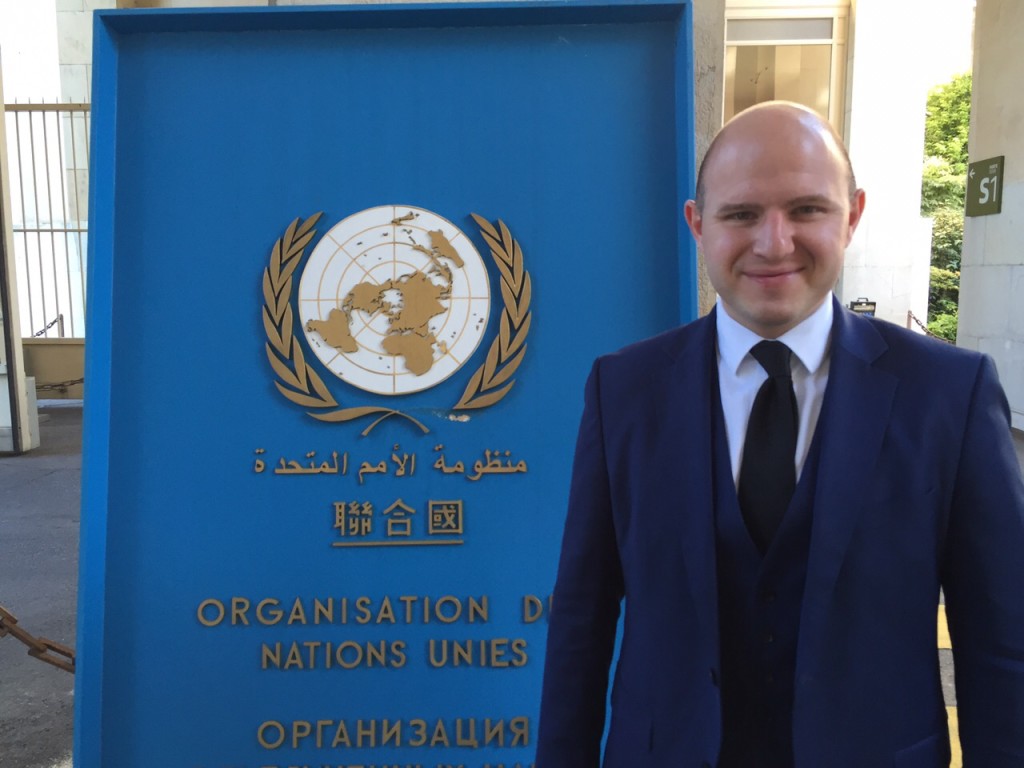On 30 June 2015, ADHRB’s International Advocacy Officer Michael Payne delivered a statement on human rights in Bahrain and Saudi Arabia during an interactive panel discussion on human rights and combating terrorism at the 29th session of the Human Rights Council in Geneva. Please continue reading for full remarks or click here to download a PDF.
الرجاء الضغط هنا لقراءة هذه الرسالة باللغة العربي
Mr. President,
Alsalam Foundation together with Americans for Democracy & Human Rights in Bahrain welcomes the adoption of Res. 28/17 on the occasion of this interactive panel discussion. We would like to raise our concern with regards to approaches by certain states in countering the effects of terrorism at the expense of human rights. We are particularly concerned with recent amendments to national legislations which rely on expansive anti-terror laws to criminalize free expression.
In Bahrain, anti-terror legislation currently provides the Public Prosecution with grounds to issue detention orders of up to 90 days without justification. It also allows for the extension of this detention period. This gives the Public Prosecutor authority to hold individuals without trial for up to 6 months. Unfortunately this overreaching legislation is also flawed in practice. Too often, it has been used to detain or sentence individuals on charges related to their free expression. Detainees arrested on terror charges also report being subjected to torture during the pre-trial detention period. Such has been the case for award-winning photojournalist Hussain Hubail, human rights defender Naji Fateel and juvenile Jehad Sadeq.
In Saudi Arabia, a similar misapplication of terror law is also perpetrated. Since 2014, the enactment of the Penal Law for Crimes of Terrorism allows the Ministry of Interior to hold someone for up to a year before the Specialized Criminal Court determines whether their detention is valid. The Court is also defective in its decision-making. A prominent example of this is illustrated by the sentencing of human rights lawyer Waleed Abu al-Khair, who was sentenced to 15 years in prison for ‘undermining the regime’ and ‘harming public order’, charges that both fall under Saudi’s expansive terror laws. In 2014, the Court also sentenced prominent Shia religious leader Sheikh Nimr al-Nimr to death for criticizing the government.
These misconstructions of terrorism which equate peaceful dissent with terrorist acts are a growing concern in the region. We therefore ask the panel if they could propose best practices or advise on international accountability mechanisms that aims to ensure the full enjoyment of human rights and fundamental freedoms while countering terrorism.
Thank you





